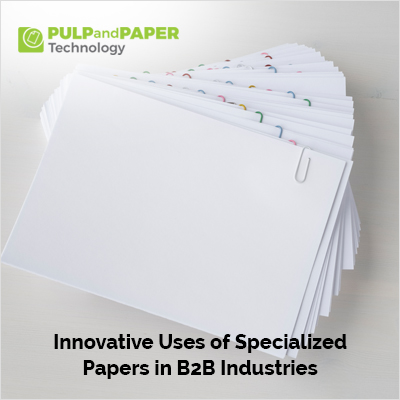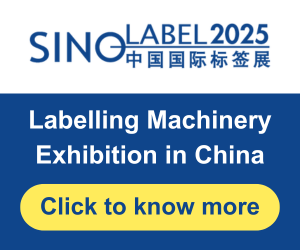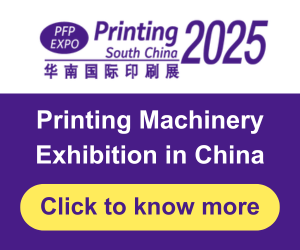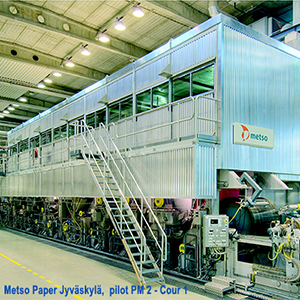Innovative Uses of Specialized Papers in B2B Industries

Specialized papers have evolved beyond traditional uses, finding innovative applications across various industries. In the healthcare sector, anti-microbial and tamper-evident papers enhance patient safety and document security. The food and beverage industry benefits from temperature-sensitive and grease-resistant papers, ensuring product quality during transportation and packaging. In manufacturing, waterproof and tear-resistant papers withstand harsh conditions, while chemical-resistant papers document processes without risk. The textile industry utilizes anti-static paper and perforated paper for fabric protection and efficient pattern-making. Construction and architecture employ water-activated adhesive paper for labeling and UV-protected blueprint paper for document longevity. Financial services rely on security paper to prevent counterfeiting and RFID-embedded paper for efficient tracking. Lastly, environmental monitoring incorporates seed paper for sustainable promotions and recycled content paper for eco-friendly documentation, showcasing a commitment to environmental responsibility.
Specialized papers can offer unique benefits and innovative solutions in various B2B (business-to-business) industries. Here are some innovative uses of specialized papers in different sectors:
1. Healthcare Industry:
In the healthcare industry, the utilization of specialized papers plays a crucial role in enhancing patient safety and maintaining the integrity of sensitive information. Anti-microbial paper emerges as a valuable solution, finding application in hospitals and healthcare facilities for various purposes, including patient records, prescription labels, and other essential documents. This innovative paper is designed to inhibit the growth and spread of microorganisms, contributing to a hygienic environment and reducing the risk of infections within medical settings.
Another significant application in the healthcare sector is the use of tamper-evident paper. This type of paper serves as a safeguard for sensitive medical documents and packaging, ensuring their integrity throughout the supply chain. Tamper-evident features provide visible evidence if any unauthorized access or interference occurs, offering an added layer of security for critical information and medical supplies. By incorporating these specialized papers into their processes, healthcare professionals can address both hygiene concerns and the protection of confidential data, ultimately contributing to the overall safety and efficiency of patient care.
2. Food and Beverage Industry:
In the dynamic and demanding landscape of the food and beverage industry, specialized papers offer innovative solutions that cater to specific challenges. Temperature-sensitive paper emerges as a key asset in this sector, providing real-time monitoring capabilities for products that are particularly vulnerable to temperature variations during transportation. Employed in labels or packaging, this specialized paper ensures the quality and safety of perishable goods by allowing stakeholders to track and maintain optimal storage conditions. Through the integration of temperature-sensitive paper, the industry can enhance its ability to deliver fresh and safe products to consumers, addressing crucial concerns related to food safety and quality control.
Another valuable application in the food and beverage domain is the use of grease-resistant paper. This specialized paper is specifically designed for packaging oily or greasy food items, serving as a barrier that prevents the paper from becoming soggy and compromising the quality of the product. By maintaining the integrity of the packaging, grease-resistant paper not only enhances the visual appeal of the food but also contributes to the overall consumer experience. This innovative solution aligns with industry standards for preserving the freshness and presentation of food items, making it an indispensable asset for businesses seeking to uphold high standards in product quality and customer satisfaction.
3. Manufacturing Sector:
In the manufacturing sector, where rugged conditions and exposure to various elements are commonplace, specialized papers offer innovative solutions to address the unique challenges faced in document management. Waterproof and tear-resistant paper emerges as a practical choice, particularly in manufacturing environments where documents are frequently exposed to harsh conditions, be it on the shop floor or in outdoor settings. This type of paper provides durability and resilience against moisture, ensuring that important documents remain intact and legible despite potential exposure to water or other environmental factors. By incorporating waterproof and tear-resistant paper, manufacturers enhance the longevity and reliability of crucial documentation, contributing to streamlined operations and improved efficiency in challenging working environments.
Additionally, the use of chemical-resistant paper proves instrumental in documenting processes that involve exposure to chemicals or liquids. This specialized paper is designed to withstand the corrosive effects of various substances, eliminating the risk of damage that traditional paper might face in such environments. By choosing chemical-resistant paper, manufacturing facilities can maintain the accuracy and longevity of critical documentation related to processes, safety protocols, and material handling. This not only ensures compliance with industry standards but also promotes a safer and more organized work environment, where essential information remains intact and accessible throughout the manufacturing processes.
4. Textile Industry:
In the textile industry, where precision and protection of delicate materials are paramount, specialized papers play a pivotal role in addressing specific challenges and streamlining essential processes. Anti-static paper proves to be a valuable asset by helping prevent the build-up of static electricity, thereby reducing the risk of damage to delicate fabrics during storage and transportation. As textiles are susceptible to static charges that can attract dust and compromise the integrity of the material, the use of anti-static paper ensures a protective barrier, safeguarding the quality and appearance of fabrics. This innovative solution contributes to maintaining the pristine condition of textiles and upholds industry standards for quality control in storage and transit.
Another application tailored to the textile industry is the use of perforated paper for pattern making. This specialized paper is designed with pre-perforated sheets, allowing for efficient and precise pattern creation in the manufacturing process. By providing easily tearable lines along the perforations, this paper streamlines the pattern-making process, saving time and effort for designers and manufacturers. The use of perforated paper in pattern making enhances accuracy and consistency, resulting in well-defined templates that contribute to the production of high-quality textiles. Overall, these applications demonstrate how specialized papers cater to the unique needs of the textile industry, promoting both protection and efficiency in the handling and manufacturing of fabrics.
5. Construction and Architecture:
In the construction and architecture industry, specialized papers offer practical solutions to enhance efficiency and protect vital documents in the challenging environments of building sites and design studios. Water-activated adhesive paper proves to be a valuable tool, simplifying the process of creating labels or attaching documents to various building materials. The unique feature of this paper is its adhesive activation by water, providing a secure and environmentally friendly option for affixing important information. This innovation eliminates the need for additional adhesives or tapes, streamlining the labeling process and ensuring that documents remain securely attached in diverse construction settings. The water-activated adhesive paper aligns with sustainable practices, offering a convenient and eco-friendly solution for document management in the construction industry.
Additionally, blueprint paper with UV protection addresses a common challenge in architecture—protecting intricate and detailed drawings from fading due to prolonged exposure to sunlight. This specialized paper is designed to resist the harmful effects of ultraviolet (UV) rays, preserving the clarity and longevity of architectural blueprints. By incorporating UV protection into blueprint paper, architects and builders can confidently display and store crucial documents without compromising their quality over time. This ensures that vital information remains legible and accurate throughout the duration of a project, contributing to the overall success and efficiency of construction and architectural endeavors.
6. Financial Services:
In the realm of financial services, where the integrity and security of documents are of paramount importance, specialized papers play a crucial role in safeguarding sensitive information and preventing fraudulent activities. Security paper, equipped with features like watermarks, holograms, or embedded security threads, serves as a robust deterrent against counterfeiting important financial documents such as checks, certificates, and sensitive contracts. These security features provide visible and tangible cues that authenticate the legitimacy of the documents, enhancing the trustworthiness and reliability of financial transactions. By incorporating security papers, financial institutions bolster their defenses against potential threats, ensuring the confidentiality and authenticity of crucial documents.
Another innovative application in the financial sector is the use of RFID-embedded paper, which integrates Radio-Frequency Identification (RFID) technology. This technology enables efficient tracking and management of financial documents throughout their lifecycle. RFID-embedded paper enhances security measures by offering real-time monitoring capabilities, reducing the risk of loss or theft of important financial documents. This not only streamlines document retrieval processes but also contributes to a more secure and organized document management system. The implementation of RFID-embedded paper aligns with the ever-evolving landscape of financial services, providing a technologically advanced solution to address security concerns and operational efficiency in handling sensitive financial information.
7. Environmental Monitoring:
In the realm of environmental monitoring, specialized papers offer innovative solutions that align with sustainability goals and promote eco-friendly practices. Seed paper stands out as a unique and environmentally conscious option, as it contains embedded seeds that have the potential to grow into plants when planted in soil. This sustainable paper is not only suitable for various corporate applications such as gifts, promotional materials, or documentation but also serves as a tangible representation of an organization's commitment to environmental stewardship. By incorporating seed paper into their practices, companies contribute to greener initiatives, fostering awareness and engagement in environmental conservation.
In addition to seed paper, recycled content paper plays a significant role in promoting environmental responsibility within corporate settings. This type of specialized paper is manufactured using recycled materials, reducing the demand for virgin paper and minimizing the environmental impact of paper production. Suitable for companies with a commitment to sustainability, recycled content paper aligns with circular economy principles by extending the life cycle of paper products and decreasing reliance on new raw materials. By choosing recycled content paper for documentation and promotional materials, organizations actively participate in reducing their ecological footprint and demonstrating a dedication to environmentally friendly practices in line with contemporary environmental monitoring standards.
Conclusion:
In each of these cases, specialized papers contribute to improved efficiency, enhanced safety, or environmental sustainability within B2B industries. As technology and materials continue to advance, the range of innovative uses for specialized papers is likely to expand further.









